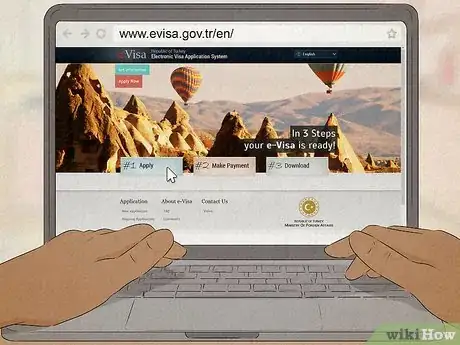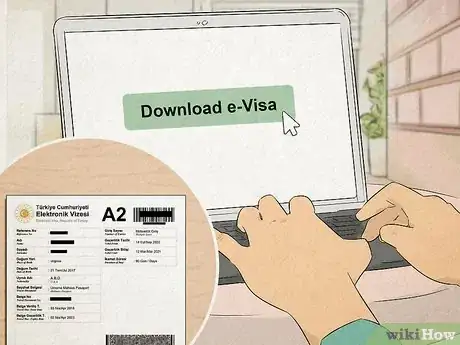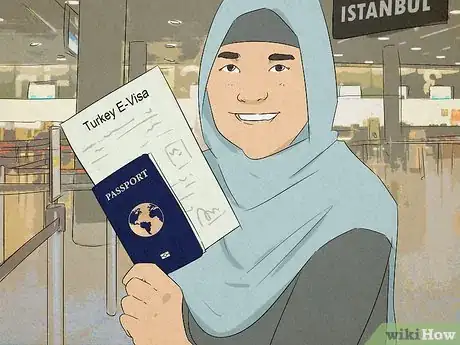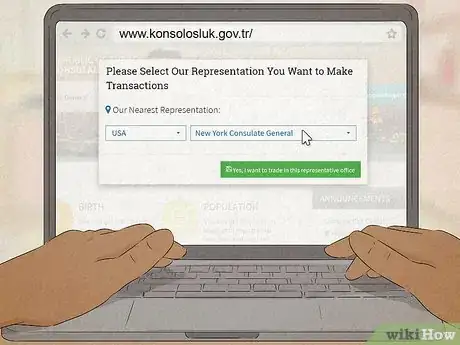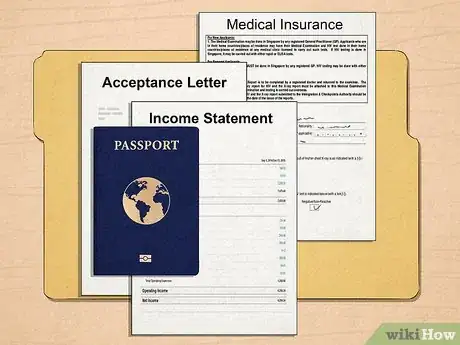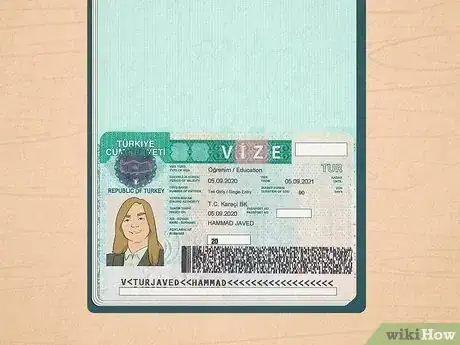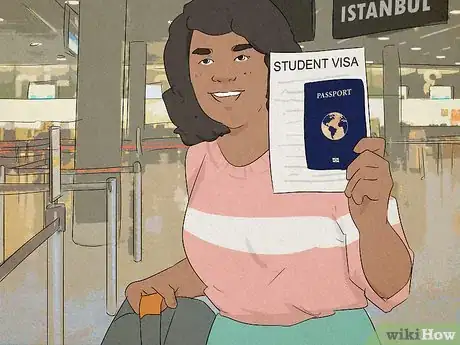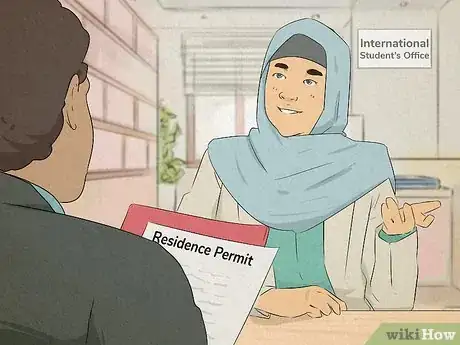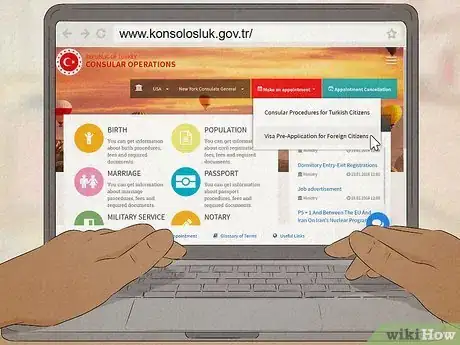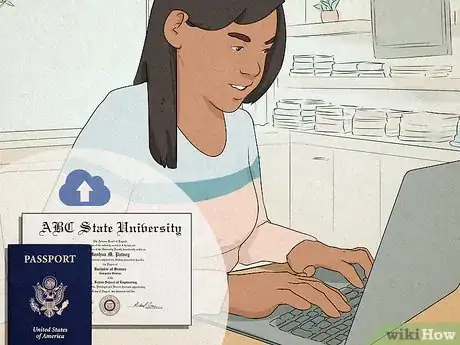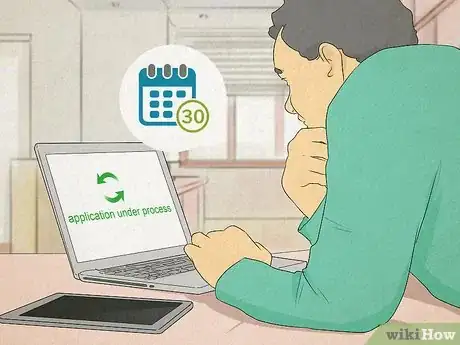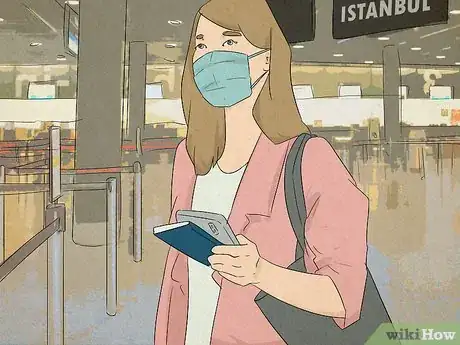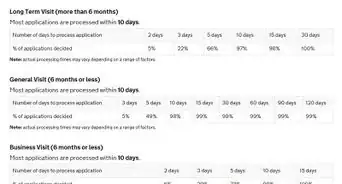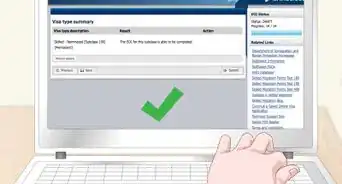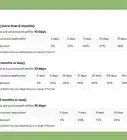This article was co-authored by Jennifer Mueller, JD. Jennifer Mueller is an in-house legal expert at wikiHow. Jennifer reviews, fact-checks, and evaluates wikiHow's legal content to ensure thoroughness and accuracy. She received her JD from Indiana University Maurer School of Law in 2006.
There are 14 references cited in this article, which can be found at the bottom of the page.
This article has been viewed 8,323 times.
Turkey's beautiful sites and rich cultural and archaeological history make it a top destination for tourists and students alike. Most travelers to the Mediterranean country need a visa to enter, although the process for getting this visa varies depending on your reason for traveling and how long you intend to stay. With a tourist visa, you can stay in the country for up to 90 days. If you plan to study or work in Turkey, get a student or work visa, then apply for a residence card after you enter the country.[1]
Steps
Tourist Visa
-
1Visit the Turkish e-Visa website. Go to https://www.evisa.gov.tr/en/ to apply for your e-Visa. Have your passport handy because you'll need to enter information from it. Make sure your passport will be valid for at least 6 months from the date you plan to travel to Turkey.[2]
- You don't need a visa to visit Turkey for tourist purposes if you have a national ID from one of the following countries: Germany, Belgium, France, Georgia, The Netherlands, Spain, Switzerland, Italy, Turkish Republic of Cyprus, Liechtenstein, Luxembourg, Malta, Portugal, Ukraine, or Greece.[3]
-
2Complete the application. Choose your home country from the drop-down menu to get started, then enter your information exactly as it appears on your passport. You don't need to know the exact date you plan to travel or already have your flight information—just use a date in the same time frame.[4]
- If you're traveling with family, each person must have their own e-visa (including children and infants). However, you can complete one application for multiple e-visas.
Advertisement -
3Pay the fee using a major credit or debit card. After you submit your application, pay the application fee online through the e-Visa website. Print your payment receipt in case there are any problems with the payment. This fee is non-refundable, even if your application is rejected.[5]
- The amount of your fee varies depending on your home country, but it's never more than US $100.[6]
- The fee is payable in US dollars, although you don't need a US account to make your payment. The conversion from your national currency to US dollars will be made automatically and your account will be charged an equivalent.[7]
- After you make your payment, you'll get an email within an hour to verify the payment. If you don't see it in your inbox, check your spam folder. If you don't click through to approve the payment within 48 hours, your application will time out and you'll have to start the process again.[8]
-
4Download your copy of your e-Visa. Once your payment is finalized, you'll get an email with a link to download your e-Visa. Passport control officers at the point of entry will already have the e-Visa information in their system. However, it's still a good idea to print a paper copy and keep it with you just in case there are any issues.[9]
- Pay attention to the validity period of your e-Visa. You can't enter Turkey prior to the date when the validity period starts.
-
5Travel to Turkey with your passport and e-Visa. You can travel to Turkey at any time during the validity period of your e-Visa. The e-Visa is also good for multiple entries, so you can enter and leave as many times as you want during the validity period.[10]
- How long you can stay in Turkey per year varies depending on your home country, but it's typically 90 days. If you want to stay in Turkey any longer than that, you'll need to apply for a residence permit.
Student Visa
-
1Apply online at the website for the nearest Turkish consulate. To get started, go to https://www.konsolosluk.gov.tr/ and choose your country from the drop-down menu on the left side. Then, choose the Turkish diplomatic mission closest to you from the drop-down menu on the right. On the menu bar, click "Visa," then "Visa Pre-Application."[11]
- Enter your information as it appears on your passport. Then, submit your information to the nearest Turkish consulate.
- Because the visa application and approval process can take a month or longer, apply as soon as you get your acceptance letter to make sure you have your visa before classes start.
-
2Pay the visa application fee online. Use a major debit or credit card to pay your visa fee. Although the amount varies depending on your home country, it's typically less than US $200.[12]
- Save your payment confirmation in case there's an issue with your payment later.
-
3Mail your passport and original supporting documents to the consulate. If you live close to the embassy or consulate, make an appointment and take your documents in person. Otherwise, use certified mail to send your passport and other documents required to support your application. The website will give you a list of required documents when you complete the pre-application. These documents include:[13]
- Valid passport
- Acceptance letter from a Turkish university
- Equivalence statement regarding your education in your home country
- Income statement (bank statement or scholarship/financial aid letter)
- Proof of medical insurance
-
4Get your passport back with your visa inside. A consular officer processes your application and sends your passport back to you. If your application was approved, you'll have your visa. It can take at least 30 days to process your application.[14]
- You might get a call or email from the consular officer if you're missing any necessary documents. Make sure you submit these as soon as possible to avoid any additional delays.
- If your visa application is denied, you'll receive a letter informing you of the decision. While there's no way to appeal that decision, you're free to file a new application immediately.[15]
-
5Enter Turkey using your passport and student visa. Your visa is valid for a single entry into the country. Once you get to Turkey, your school's international students office will help you get settled in and register for classes.[16]
- Typically, your school will have on-campus housing options for international students. Once you've moved into your student housing, use that address for residence purposes in Turkey.
-
6Apply for a residence permit through your school's international students office. Fill out the residence permit application at https://e-ikamet.goc.gov.tr/. Take your completed application along with your passport, student certificates, proof of medical insurance, and 4 passport photos to your school's international students office. They'll submit your application on your behalf.[17]
- While students are exempt from the application fee, you still have to pay a fee for your residence card (about US $20). If you pay this online, bring your receipt to the international students office.
- Within 90 days of the date you apply, your residence permit will be mailed to the address you provided on your application.
- Once you have your resident permit, you're allowed to enter and leave the country as many times as you need to while your permit is still valid. If your permit will expire while you're outside the country, make sure you renew it before you leave.[18]
Work Visa
-
1Get a job in Turkey. Before you can get a visa to live and work in Turkey, you need a guaranteed position at a Turkish company. The company has to satisfy various conditions before it can hire foreign workers. Most Turkish companies who list job openings available for foreign workers have already verified that they've met these conditions.[19]
- Many job openings are posted online. You can also travel to Turkey using a tourist work visa if you want to apply for jobs in person or complete interviews.
- After you've secured employment, your employer will give you a letter verifying your employment. You'll need this for your work visa application. You can also use your employment contract, if you signed one.
-
2Start your visa application on the website for the Turkish consulate. Go to https://www.konsolosluk.gov.tr/ and choose your country from the drop-down. When the list of Turkish consulates comes up, choose the nearest one. Then, click on the visa pre-application option in the menu to go to the form.[20]
- Enter your personal information exactly as it appears on your passport. Select "work visa" as the visa type.
- Workers from some countries, such as the US, can enter Turkey on an e-visa (for tourism) through https://www.evisa.gov.tr/en/. Once in Turkey, your employer will help you get a residence card so you can stay in Turkey and work.[21]
-
3Scan and attach copies of your passport and credentials. Based on the information you provide in your pre-application, the website will display a list of documents you need to provide. At a minimum, you'll need to scan all the pages of your passport to attach a digital file. If your employment requires a particular degree or credentials, scan proof of those credentials as well.[22]
- For example, if you got a job in Turkey as an accountant, you would attach copies of your degree in accountancy as well as your accountant certification.
- If your documents aren't printed in the Latin alphabet, have them translated by a certified translator and upload the translation along with a sworn statement from the translator that their translation is accurate.
-
4
-
5File your application online with the Turkish consulate in your home country. Go to https://www.konsolosluk.gov.tr/. From the drop-down, choose the Turkish embassy or consulate closest to you. Then, submit your application and documents for review by a consular officer working at that location.[25]
- A consular officer will contact you regarding your application and documents. Typically, you'll need to mail the original documents to the consular officer for inspection and validation. They'll also need your passport to affix your visa. If you live too far away from the embassy or consulate to take these documents there in person, you can mail them in.
-
6Wait up to 30 days for the consulate to process your application. A consular officer reviews your application and documents and works with the Turkish government to get your application approved. Typically the process takes about 30 days, although you might get a decision sooner.[26]
- If your application is missing any necessary supporting documents, the consulate will contact you and let you know what documents they need. The 30-day period doesn't start until the date those documents are received, so submit them as soon as possible.
- You'll get a letter if your visa application is denied. While there's no way to appeal this decision, you can file another application if you want.[27]
-
7Travel to Turkey within 180 days after your visa is issued. Your visa is only valid for a single entry into the country. You can travel at any time after the consulate issues your visa. However, if you wait more than 180 days, you'll have to re-apply. [28]
- After you arrive in Turkey, your employer will assist you in getting a residence permit. While your visa only allows you to enter the country to accept employment, the residence permit allows you to live and work there.
- When you find a place to live in Turkey, register your address with the Address Registry System. Your employer can help you with this. You only have 20 days from the date you enter Turkey to register.
Warnings
- While you can hire a company to complete and submit your visa application for you, they won't do anything you can't do yourself and will charge a fee for their services. Since none of these services are approved by or associated with the Turkish government, you're better off completing the application process on your own.[31]⧼thumbs_response⧽
- As of 2021, the CDC advises avoiding all travel to Turkey due to a very high level of COVID-19 in the country.[32]⧼thumbs_response⧽
References
- ↑ http://www.mfa.gov.tr/visa-information-for-foreigners.en.mfa
- ↑ http://www.mfa.gov.tr/visa-information-for-foreigners.en.mfa
- ↑ http://www.mfa.gov.tr/countries-whose-citizens-are-allowed-to-enter-turkey-with-their-national-id_s.en.mfa
- ↑ https://www.evisa.gov.tr/en/tour/
- ↑ http://www.mfa.gov.tr/visa-information-for-foreigners.en.mfa
- ↑ http://www.mfa.gov.tr/data/KONSOLOSLUK/vize-harc-miktarlari-tr.pdf
- ↑ https://www.evisa.gov.tr/en/tour/
- ↑ https://www.evisa.gov.tr/en/tour/
- ↑ https://www.evisa.gov.tr/en/tour/
- ↑ https://www.evisa.gov.tr/en/tour/
- ↑ https://www.studyinturkey.gov.tr/StudyinTurkey/ShowDetail?rID=Egqvn0o1tiU=&&cId=PE4Nr0mMoY4=
- ↑ https://suabroad.syr.edu/wp-content/uploads/2015/12/Istanbul-Visa-Fall2016_FINAL.pdf
- ↑ https://suabroad.syr.edu/wp-content/uploads/2015/12/Istanbul-Visa-Fall2016_FINAL.pdf
- ↑ https://www.studyinturkey.gov.tr/StudyinTurkey/ShowDetail?rID=Egqvn0o1tiU=&&cId=PE4Nr0mMoY4=
- ↑ https://www.konsolosluk.gov.tr/Faq/Index
- ↑ https://www.studyinturkey.gov.tr/StudyinTurkey/ShowDetail?rID=Egqvn0o1tiU=&&cId=PE4Nr0mMoY4=
- ↑ https://international.khas.edu.tr/visa-and-residence-permit
- ↑ https://www.studyinturkey.gov.tr/StudyinTurkey/ShowDetail?rID=Egqvn0o1tiU=&&cId=PE4Nr0mMoY4=
- ↑ https://www.invest.gov.tr/en/investmentguide/pages/obtaining-a-work-permit.aspx
- ↑ https://www.konsolosluk.gov.tr/Visa
- ↑ https://www.konsolosluk.gov.tr/VisaInfo/Index
- ↑ https://www.invest.gov.tr/en/investmentguide/pages/obtaining-a-work-permit.aspx
- ↑ https://www.konsolosluk.gov.tr/VisaInfo/Index
- ↑ https://www.expatguideturkey.com/work-and-residence-permit-fees/
- ↑ https://www.invest.gov.tr/en/investmentguide/pages/obtaining-a-work-permit.aspx
- ↑ https://www.invest.gov.tr/en/investmentguide/pages/obtaining-a-work-permit.aspx
- ↑ https://www.konsolosluk.gov.tr/Faq/Index
- ↑ https://www.invest.gov.tr/en/investmentguide/pages/obtaining-a-work-permit.aspx
- ↑ http://www.mfa.gov.tr/general-information-about-turkish-visas.en.mfa
- ↑ https://www.konsolosluk.gov.tr/Faq/Index
- ↑ https://www.evisa.gov.tr/en/tour/
- ↑ https://wwwnc.cdc.gov/travel/notices/covid-4/coronavirus-turkey
